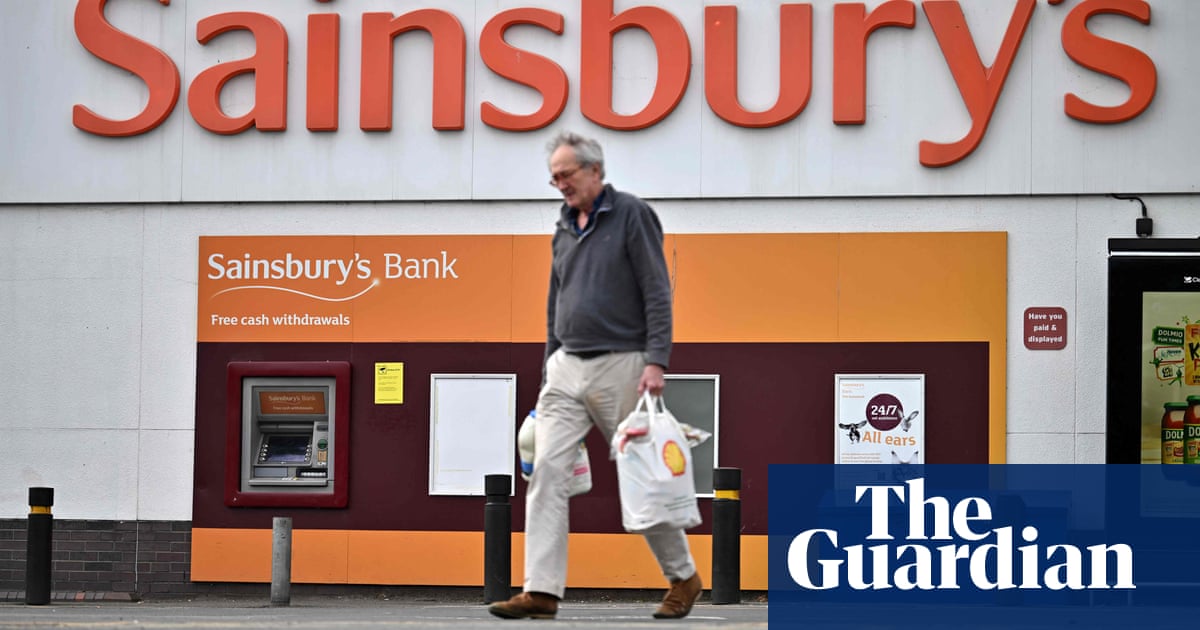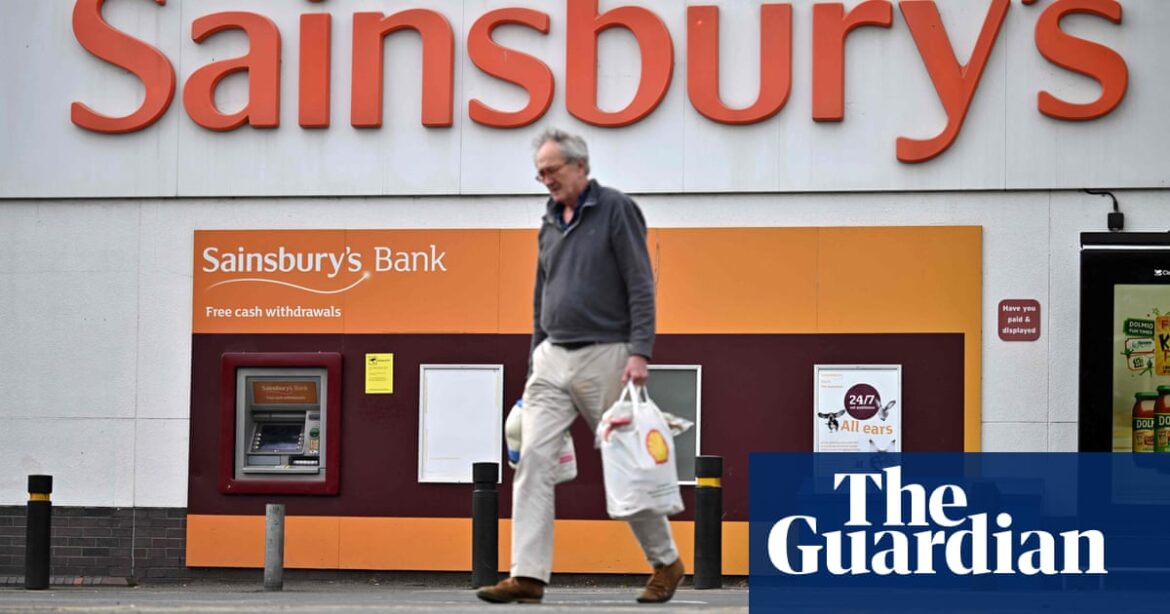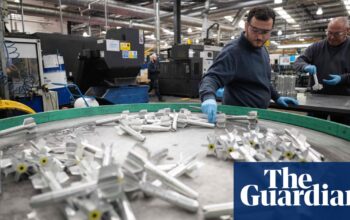
Sainsbury’s said sales growth slowed in recent weeks as food inflation eased and as consumers shop “more cautiously” amid poor weather and the cost of living crisis.
The supermarket said sales at established stores rose 3% in the three months to 22 June compared with a rise of 4.8% in the prior quarter, excluding fuel and the impact of the closure of the group’s Irish Argos stores.
Sales at Argos fell by 6.2% in the quarter – worse than the 4.7% decline in the previous three months – despite selling 25% more TVs than a year before as sports fans prepared to watch the men’s Euro 2024 football tournament.
The retailer said the decline reflected “an unseasonal start to summer”, with cold and wet weather hitting sales of summer goods such as paddling pools and garden furniture which did well in a hot start to the summer last year. Electronics sales were weaker amid softer demand, particularly games, in what it called “a tough trading backdrop”.
“Consumers continue to shop general merchandise more cautiously,” the retailer said in a statement, adding that shoppers were responding where it had offered discounts.
Sainsbury’s said shoppers continued to buy more items of food from its shelves than a year before but grocery sales growth eased to 4.8% from 7.3% in the prior quarter as inflation across the market eased.
The Sainsbury’s chief executive, Simon Roberts, said the group continued to win market share every month as more people chose its supermarkets for their big weekly shop.
“Our food business is going from strength to strength,” he added.
The group’s online offering is proving particularly popular – 14% of sales were sold this way during the period – and there was an 80% rise in demand for its rapid delivery service.
Analysts said Sainsbury’s growth was in line with expectations as it was clear households continue to struggle with higher bills including energy, mortgages and rent.
after newsletter promotion
“Given the unfavourable weather in the UK, weak performance in clothing was expected, especially as Sainsbury’s focuses more on assortment and less promotion,” said William Woods at Bernstein.
Sophie Lund-Yates, the lead equity analyst at Hargreaves Lansdown, said: “As inflation cools, the weather worsens and tough comparisons crop up on the course, eking out the amount of growth seen last year was always a difficult ask. But there is a lingering Sainsbury’s specific issue in its ownership of Argos. Electronics aren’t faring well in this economic climate, as people prioritise the essentials.”
Sainsbury’s shares were down nearly 3% on Tuesday, making it the biggest faller on the FTSE 100.
Source: theguardian.com



